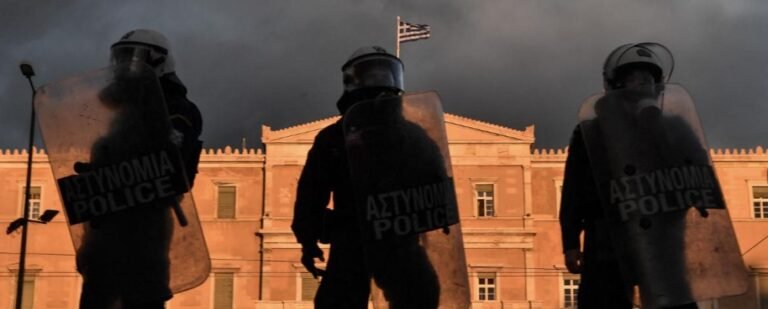
Two weeks after Star TV crime reporter Giorgos Karaivaz was gunned down outside his home, Kostas Vaxevanis, the owner of the newspaper Documento, reported on 24 April that he had grounds for believing he was also the target of a “murder contract.” Like Karaivaz, Vaxevanis has also done a great deal of investigative reporting on the police and corruption in Greece.
Karaivaz had investigated a group of criminals and police officers who were allegedly extorting money from nightclubs in exchange for protection, while Documento recently covered a case of police corruption.
And like Karaivaz, Vaxevanis had personally investigated the decision to provide controversial TV presenter Menios Fourthiotis with police protection, which was withdrawn after it was reported that the threats against Fourthiotis had been staged. Suspected of links with the murder contract against Vaxevanis, Fourthiotis was arrested on 27 April on a charge of “criminal conspiracy.”
Despite the Greek prime minister’s promise of a “swift investigation” into Karaivaz’s murder, the authorities have so far simply established that it was linked to the organized crime circles about which he reportedly had sensitive information. They have also identified the person who threatened him but have not linked that person to the murder.
“It is essential that the Greek police show that they can be trusted and that journalists can rely on them for their protection,” said Pavol Szalai, the head of RSF’s EU and Balkans desk. “A pre-condition for this is the swift identification of the perpetrators and instigators of the Giorgos Karaivaz murder. Thorough investigations must also be ordered into his and Kostas Vaxevanis’s revelations about corruption within the state apparatus, and the harassment of reporters in the field must end at once.”
A recent increase in journalists’ mistrust of the Greek police has been fuelled not only corruption suspicions but also by the police violence and arbitrary arrests to which reporters have been subjected while covering protests or stories linked to migrants. The citizen protection minister’s adoption of new national guidelines for policing the streets has also fuelled a widespread feeling that press freedom is under threat.
In the story reporting that he was the target of a murder contract, Vaxevanis said, “the last thing I would do would be to contact the police.” Although the interior minister has confirmed taking measures for his protection, Vaxevanis says he lives “in a corrupt state that cannot be trusted.” Other journalists reached by RSF after the Karaivaz murder made similar comments, and referred to “the lack of interest on the part of institutions in protecting journalists.”
Reportedly shot multiple times outside his Athens suburb home by a man on the back of a motorcycle, Karaivaz is the second journalist to have been murdered in Greece in the past 11 years. Socrates Giolias, a journalist who investigated corruption and ran privately-owned Radio Thema 98.9 FM, was also gunned down outside his home in July 2010. Claimed by a far-left group, the murder is still unsolved.
Greece is ranked 70th out of 180 countries in RSF’s 2021 World Press Freedom Index.
Source: https://rsf.org/en/news/greek-police-must-show-journalists-can-trust-it-their-protection-after-one-was-murdered-and-another
Image Credit: Louisa GOULIAMAKI / AFP

